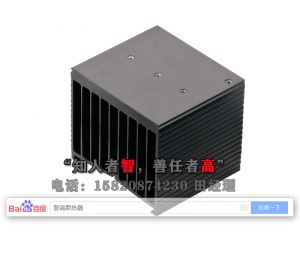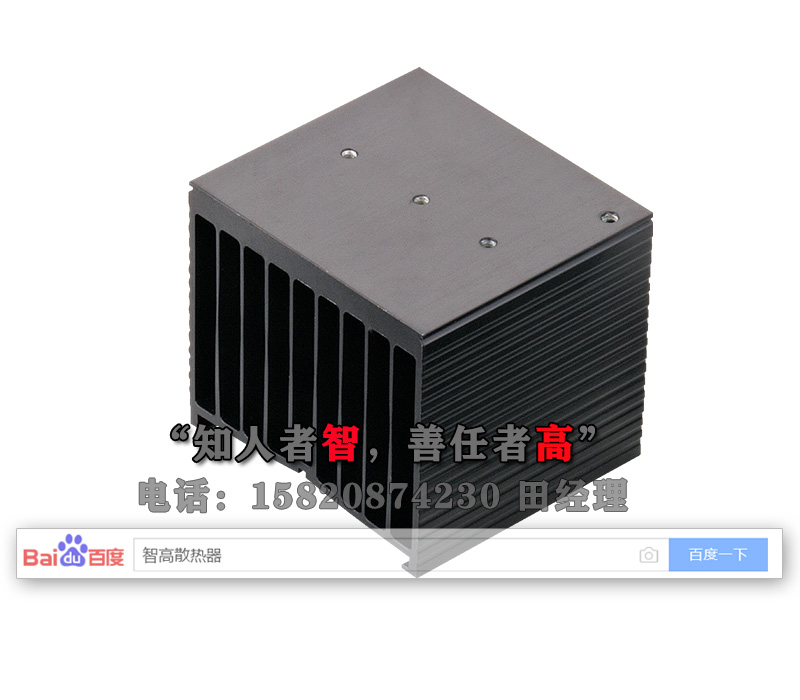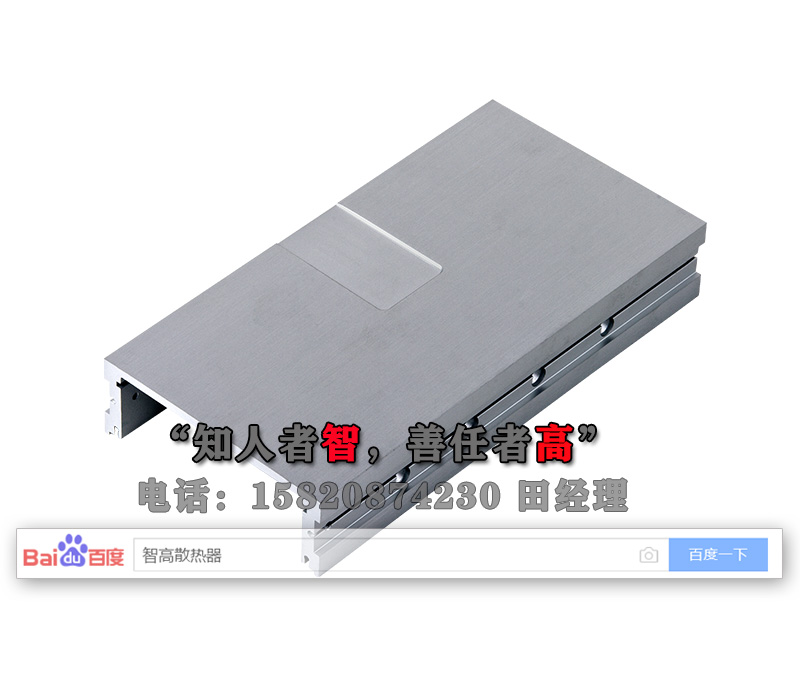
If you have touched the radiator panel, you will find that the radiator is mostly associated with "aluminum". The radiator industry is also accustomed to calling it "aluminum radiator", but there will be questions here: why most radiators are made of aluminum What about raw materials? What are the advantages of using aluminum as raw material? In order to clarify these problems, it is necessary to go back to the source, understand the performance characteristics of aluminum profiles, and then unearth the reasons why aluminum profiles are so popular in the radiator manufacturing industry.

The aluminum profile is made of pure aluminum or aluminum alloy. After smelting, cutting, extrusion and other processes, metal panels with different cross-sectional shapes can be formed, and then they can be subjected to surface treatment processes such as wire drawing, sandblasting, electroplating, laser screen printing, and anodizing. It can be cast into a radiator shell with delicate surface, superior and stable performance. As a raw material, aluminum profiles mainly have the following characteristics.
1. Lightweight
The density of aluminum profile is only 2.7g/cm3, which is about one-third of the density of steel and copper (7.85g/cm3 and 8.9g/cm3), and belongs to light metal. Therefore, when used to make radiator panels, the weight of the aluminum profile is lighter under the same volume, and the lightweight aluminum profile can be put into production to produce a thin and light radiator shell, which is in line with the current trend of pursuing light and thin products.
2. Corrosion resistance
The working environment of the radiator shell is complicated, and the selected raw materials must be able to pass the level of corrosion resistance. Aluminum can form a dense oxide film on the surface to prevent further internal corrosion, and the aluminum profile after surface treatment has better corrosion resistance. Therefore, aluminum profiles can stand on their feet in practical applications by virtue of this, and will not affect the aesthetics and heat dissipation performance due to metal corrosion in the later stage.
![5ea297ed9e198.jpg 散熱器(4)[1].jpg](/uploads/img1/20200424/5ea297ed9e198.jpg)
3. Thermal conductivity
The ability to conduct heat and dissipate heat is an indispensable performance of the radiator. The thermal conductivity of aluminum is 204/W·(m·k), but the hardness of pure aluminum is low, and it is easy to deform when heated. Making pure aluminum into aluminum alloy can not only ensure excellent thermal conductivity, but also ensure heat dissipation. The device has a long service life.
In the industry, copper and aluminum are often used as raw materials to compare. Although copper is indeed better than aluminum in thermal conductivity, it cannot achieve light weight and thinness, and the cost is higher than aluminum alloy. Therefore, aluminum radiators are on the market. More popular.
4. Non-magnetic
Non-magnetic is also an important performance of the radiator shell. Among them, the radiator shells used in audio and electronic products must be non-magnetic. This is to avoid interference with the transmission of signals. Aluminum alloys that do not contain iron, cobalt, nickel and other metals are not magnetic, so they will not interfere with the audio And the normal operation of electronic products.
5. Plasticity
The specific tensile strength, yield strength, ductility and corresponding work hardening rate of metals all affect the range of deformation variables. Therefore, different metals have different plasticity. Aluminum alloys are easy to forge and have high plasticity. , So it is widely used in industry.

Chicco uses Al6063/Al6061 aluminum alloy in the manufacture of radiators, which can be processed and shaped into radiators of different shapes by virtue of its superior plasticity. The fin-shaped radiators and sun-flower radiators are typical representatives. Coupled with the subsequent processing of wire drawing, sandblasting, laser engraving and silk screen printing on the surface of the radiator, it can give the product more possibilities in appearance, so it can be customized according to the manufacturer’s drawings and samples to meet different industries and Product requirements for the shape of the radiator.
Aluminum can be very popular in the radiator industry, and can shine here, thanks to its excellent performance. Zhigao Industrial adopts superior quality aluminum materials on the radiator casting road, which can lay a solid foundation for product quality from the source, and then use professional and exquisite craftsmanship to manufacture aluminum radiators that can be adapted to various fields and exert practical effects. , To solve the heat dissipation problem of various industries.
Dongguan Zhigao Industrial Co., Ltd. specializes in producing aluminum automotive power amplifier radiators, aluminum LED radiators, electronic profile radiators, cnc processing and other products.